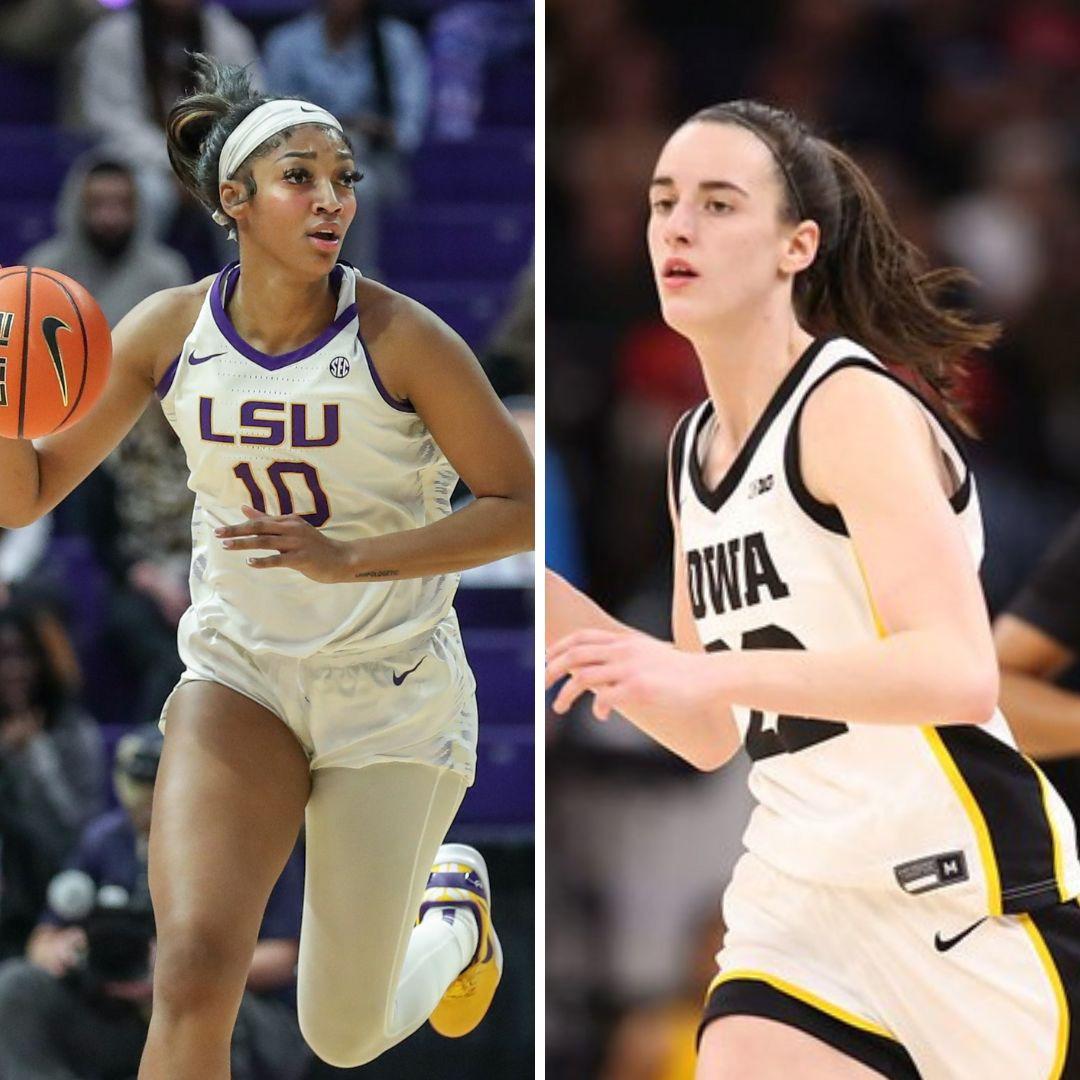Both LSU’s Angel Reese and University of Iowa’s Caitlin Clark have received tremendous accolades in the 2024 NCAA Tournament. Clark has been named 2024 Associated Press Player of the Year, broken the record for most points scored by any man or woman in an NCAA Tournament and won the title for National Player of the Year. Reese was named 2023 ESPY Best Breakthrough Athlete of the Year and won the BET Award for Sportswoman of the Year. Reese was also named to the Wooden Award All-American Team, alongside Clark.
Clark’s accomplishments in basketball have evoked celebrity praise, highlight reels emphasizing her best plays and widespread acclaim that paints her as the face of women’s basketball. By contrast, Reese’s reputation in the media is shaped by backlash about her competitive attitude. She’s often been labeled by haters on social media as “playing dirty” with an attitude of “poor sportsmanship.”
In what seems like an attempt to diminish the accomplishments of Reese, the media has scrutinized her as someone undeserving of her titles because of her “lack of class.”
In contrast, Clark is praised on and off the court for her outstanding role model status. This begs the question of how much of Reese’s and Clark’s reputation are perpetuated by racist stereotypes, as Reese is a Black athlete and Clark is a White athlete.
In evaluating the differences between their reputations, it is important to understand just how differently each player is viewed for the same actions.
The infamous video of Reese taunting Clark by pointing at her own ring finger and waving her hand in front of her face was met with tremendous backlash. Reese was conveying to Clark that LSU would win the 2023 NCAA championship and the ring would sit on Reese’s finger, and the, “you can’t see me” taunt, which is derived from John Cena’s infamous phrase, is meant to imply that Clark is unable to guard against Reese.
In contrast, news outlets have praised Clark for her taunts, stating that it adds to her character and fierce attitude on the court. ESPN even ran a segment that named Caitlin Clark as the “queen of clapbacks.” In this video, Clark is commended for doing the same “you can’t see me” taunt as Reese.
These instances alone show the double standards that shape the reputations of these two players. These athletes both train, perform and add to the vital competitive nature of a basketball game. To shame one and praise another for the same actions is to be complicit in the racial bias that exists in the sports world.
In a press release on Apr. 1, Reese emotionally addressed the backlash she’s received.
“I’ve been through so much,” Reese said. “I’ve been attacked so many times…I just want them to always know I’m still human. All this has happened since I won the National Championship, and I said the other day that I haven’t had peace since then.”
This was one of the first times Reese addressed the backlash she faces on a daily basis.
The position that athletes are put in, especially those in the spotlight, makes it hard for them to defend themselves against hate. The more athletes acknowledge their critics, the more they validate them. But the lengths to which Angel Reese receives hate have made standing up for herself unavoidable.
While Clark and Reese are just two examples of players with reputations perpetuated by stereotypes, it’s worth addressing that much of sports audiences are quick to judge players through the lens of race.
Given the popularization of women’s basketball and women’s sports in general, impressionable viewers could approach collegiate and professional sports players with subconscious racial bias because of what is fueled by the media. This invalidates the success of many athletes by justifying the racism the media molds their reputation to.
Addressing this racial bias, Reese has also spoken out multiple times praising Black athletes and coaches who were able to sidestep the backlash they face by news and media outlets. She has proudly advocated and uplifted Black athletes who have faced similarly harsh criticism, in turn acknowledging the harsher criticism Black athletes face in comparison to their White colleagues.
It’s essential that we acknowledge these racial biases when forming opinions on athletes, especially when these stigmas work to delegitimize the accomplishments of them. By focusing on their achievements and the impact that they have had on the sport, we deconstruct the innate favoritism of White athletes.







